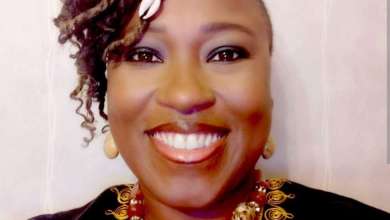Lawyers Slam Nigeria’s GMO Regulations, Demand Immediate Reforms

The recently held public hearing at the House of Representatives Joint Committee on Agriculture, Privatisation, Public Assets, Science, and Special Duties on Tuesday revealed glaring gaps in Nigeria’s handling of Genetically Modified Organisms (GMOs).
Lawyers, activists, and stakeholders present expressed deep frustration with the country’s biosafety framework, accusing regulators of prioritising foreign interests over public health and safety.
Prominent human rights lawyer, Inibehe Effiong, didn’t mince words. “Many people in this country have a strong perception that the National Assembly does not represent the interest of Nigerians. When they conclude this hearing, when they are writing their report and when they are presenting it to the House, I want them to use this as a golden opportunity to demonstrate that for once, they can stand up for the Nigerian people,” he said.
“What we witnessed today was partly an embarrassment, to say the least. Agencies like the National Biosafety Management Agency (NBMA), which are supposed to be custodians of our environment and health, were instead acting as public relations experts for foreign interests pushing GMO agendas in Nigeria.”
Effiong went on to question the NBMA’s role, stating, “I don’t know what ‘biosafety’ they are managing when their decisions are more about approving GMOs than protecting Nigerians from their potential harm.”
He called for a national moratorium on GMOs, saying, “…we must pause GMO distribution until the adverse effects—which experts have spoken eloquently against—are fully investigated. Let’s not use Nigerians as guinea pigs.”
Effiong also criticised the absence of the National Agency for Food and Drug Administration and Control (NAFDAC) at the hearing. “NAFDAC’s absence was no coincidence. This is the agency responsible for ensuring the safety of what we consume, and yet they were conveniently absent today. Perhaps it’s because NAFDAC has previously publicly stated that GMOs are unsafe for consumption, and so they do not want to be in collision with sister agencies at the hearing,” he speculated.
Adding to the outrage was a remark made by the President of the All Farmers Association of Nigeria (AFAN), who reportedly said, “It’s better to eat and die than not to eat and still die.” Effiong called the comment “insensitive and absurd,” saying, “For me, that should have been the end of the hearing. It’s shocking that such an argument was entertained.”
Environmental activist and lawyer Mariann Bassey-Orovwuje echoed Effiong’s concerns, accusing the NBMA of betraying its mandate. “The NBMA was established to regulate GMOs in Nigeria, but it has become a promoter instead. They approve virtually every application brought to them, ignoring scientific objections from concerned Nigerians,” she said.
Bassey highlighted the flaws in the NBMA Act of 2015, describing it as weak and riddled with conflicts of interest. “The National Biotechnology Development Agency (NABDA), which actively promotes GMOs, sits on the board of the NBMA. How can a promoter also be a regulator? It’s like asking a thief to guard a bank,” she said.
She also warned about the dangers of allowing foreign biotech companies to dictate Nigeria’s agricultural policies. “We don’t need GMOs in Nigeria. They’ve failed to deliver on their promises in other countries, and their introduction here will spell disaster for our food and agricultural systems. We must adopt sustainable farming practices, not laboratory-driven experiments pushed by profit-hungry multinationals,” Bassey added.
Legal expert Ifeanyi Nwankwere, Esq., brought a constitutional perspective to the debate, arguing that Nigeria’s weak GMO regulations violate fundamental rights. “Section 33 of the Constitution guarantees the right to life, but GMOs pose health risks that threaten this right. Similarly, Section 34, which upholds the dignity of the human person, is compromised when Nigerians are exposed to potentially harmful products,” he said.
Nwankwere called for stricter liability standards, transparency, and public participation in GMO regulation. “The current framework allows the NBMA to act with little oversight. We need laws that hold GMO promoters accountable for any harm caused. Nigerians deserve the right to object to unsafe products without being dismissed as meddlesome interlopers,” he argued.
The lawyers collectively demanded a complete ban on GMOs in Nigeria, at least until their safety is conclusively proven. Effiong summed up the sentiment: “We cannot be a conquered people in our own country. Nigerians must not be used as tools for experimentation by foreign interests. The government must take a stand and say no to GMOs now.”
The hearing ended with calls for a thorough review of the NBMA Act, stricter biosafety laws, and the exclusion of pro-GMO agencies from regulatory boards. Whether these demands will translate into action remains to be seen, but the voices raised at the hearing are unlikely to be silenced anytime soon.
To join THE METRO LAWYER social media platforms, please click on the following:
WhatsApp Channel:Join whatsapp
TELEGRAM: Join Telegram
FACEBOOK Join Facebook
TWITTER Join Twitter
INSTAGRAM: Join Instagram
For sponsored posts, adverts and articles, please send emails to info@themetrolawyer.com.ng or metrolawyerng@gmail.com or call 08034518185/08033240447.
DISCLAIMER:
The views/opinions expressed in this publication are those of the authors and do not purport to represent the views/opinions of The Metro Lawyer (TML), its affiliates or any of its staff.







